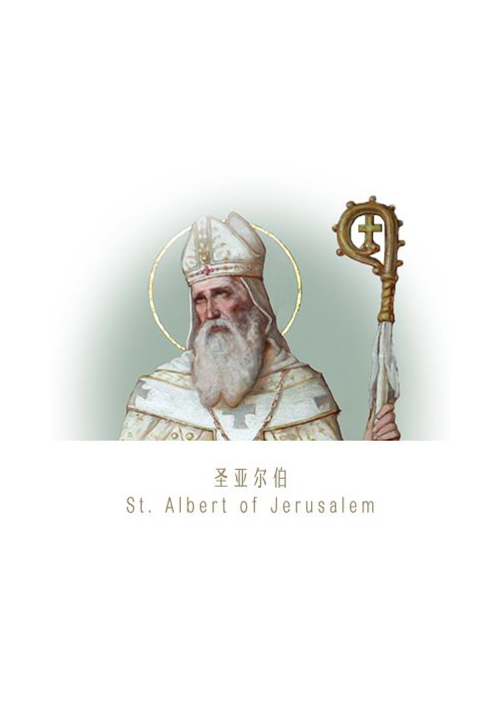St. Albert of Jerusalem (1149-1215) was a Catholic bishop, patriarch, and saint.
He is known as the founder of the Carmelite order. Born in Castel Gualtieri,
Italy, he joined the Benedictine Order and later became a monk. In 1185, Albert
was appointed Bishop of Vercelli and then Patriarch of Jerusalem in 1205.
WORKS AND ACHIEVEMENTS
Albert played a crucial role in shaping the Carmelite Order, writing its original
rule in 1209. He also established the Trinitarian Order and supported the
Franciscan Order. Albert promoted Crusader efforts and negotiated with
European leaders for support.
As Patriarch, Albert worked tirelessly for the reunification of Eastern and
Western Churches. He facilitated dialogue between Latin and Greek Christians,
advocating for unity. Albert's diplomatic skills helped resolve conflicts between
the Crusader states and the Muslim leaders. His leadership and vision
contributed significantly to the development of Christianity in the Holy Land.
LEGACY
St. Albert of Jerusalem was martyred on September 14, 1215, by the Master of
the Hospital of the Holy Spirit. He was canonized in 1476. Albert's feast day is
September 17. The Carmelite Order venerates Albert as its founder, and he's
also revered by the Trinitarian and Franciscan Orders. His legacy embodies
ecumenism, diplomacy, and devotion to God's service.
KEY DATES
– 1149: Born in Castel Gualtieri, Italy
– 1185: Appointed Bishop of Vercelli
– 1205: Became Patriarch of Jerusalem
– 1209: Wrote the original Carmelite Rule
– 1215: Martyred on September 14
– 1476: Canonized.















